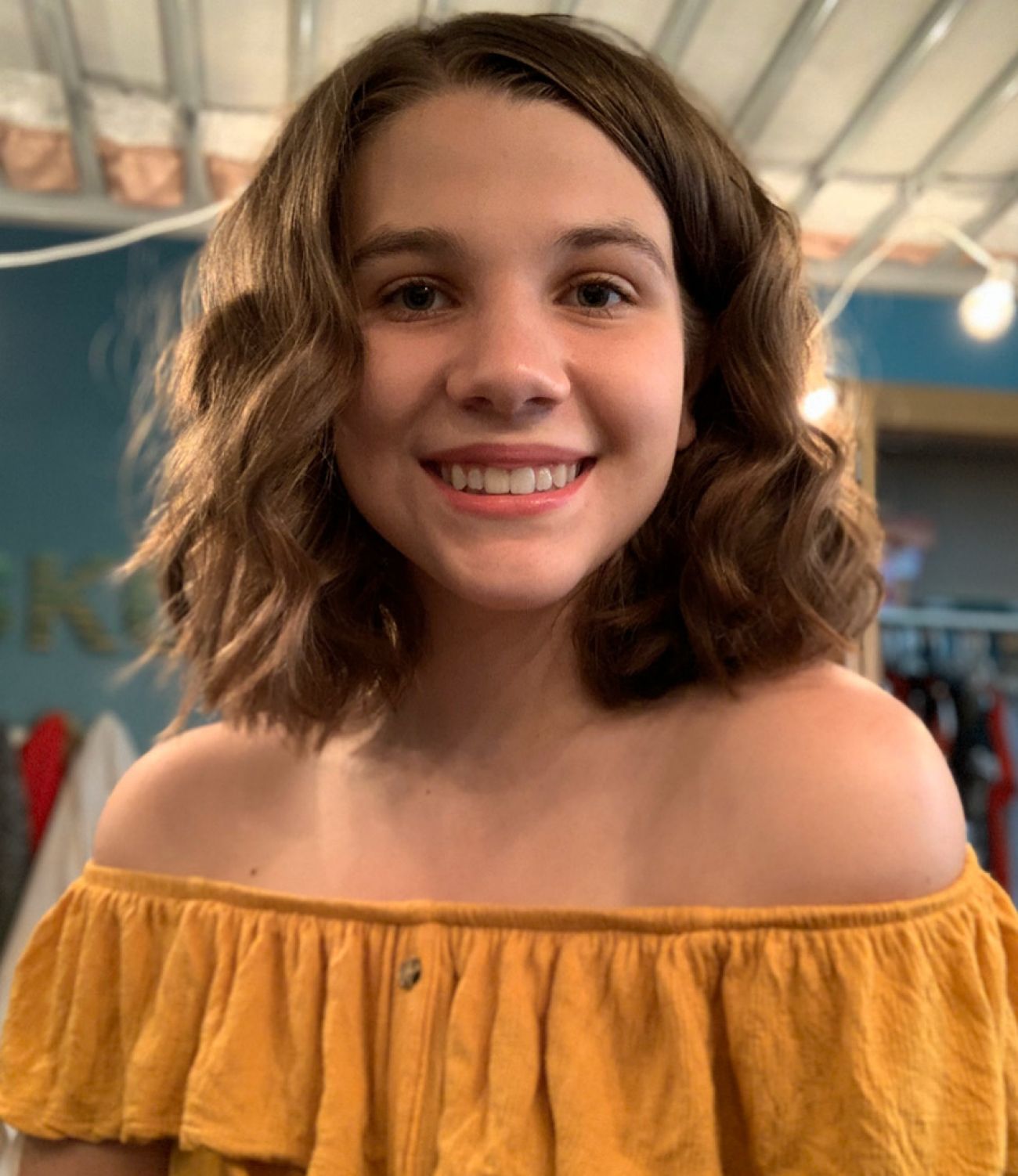First Person | Back to school in Michigan: Too new, weird and heartbreaking

The night before the first day of school, you would usually see me organizing my new school supplies, color-coding binders and laying out my first outfit of the year. Point being: I’m a girl who loves school. A girl who can’t wait to make friends, join clubs, have dances —the typical high school rites-of-passage stuff. What I would have loved more than anything was to have the high school experiences you see in movies, the ones that make children count down the days until their freshman year and make grandparents reminisce about “some of the best days of their lives.”
But this year, I wasn’t doing any of that. I was dreading school. I had so many questions and worries that there was nothing for me to get excited about. With most of my friends choosing the remote learning option, my clubs and events likely getting canceled and my fear of the virus itself, I was filled with anxiety about what tomorrow would bring.
Despite the feeling of impending doom, the next morning I got ready like usual, had my breakfast and headed to the end of my driveway, where my bus would pick me up. When I stepped onto the bus, a familiar feeling overcame me. It was nostalgic in a way — that the same bus I’d been riding since I was 4 was still here, same as ever.
- Michigan to identify K-12 schools with coronavirus outbreaks Sept. 14
- Whitmer’s ‘real-time’ school coronavirus outbreak data could be a week old
- Betsy DeVos: Michigan can expect standardized tests, despite COVID-19
Then I looked at my surroundings and realized it wasn’t the same at all. Compared to last winter, there were a third of the kids riding, everyone staggered between seats, and, of course, we were required to wear masks. Even though I’m an advocate for being as safe as possible during this pandemic, it still serves as a depressing reminder that the coronavirus is wreaking havoc in the world.
Like I had anticipated, some got by without wearing masks by taking advantage of the fact that the bus driver couldn’t see them. It’s not surprising that, when given the opportunity, kids would disobey the rules. Whether they don’t understand the pandemic or just want to be rebellious, I knew that students would slip up. I had to recognize that beforehand and try my best not to let my annoyance about it completely overtake me. I minded my own business and waited for the bus to arrive at the school.
We were 7 minutes late, so I speed-walked from the bus into the building. Because I was going so fast, I hardly had time to take everything in, but I did notice there were very few students in the hallways. I guessed that was because they tried to get everybody to class as quickly as possible. There were a few “stay six feet apart” and “masks required” signs hanging on the walls, too.
A few teachers greeted me, smiling through their masks, all asking some variation of “Ready for this crazy year?” to which I would awkwardly laugh and agree. Those kinds of remarks always feel weird to me, as if we’re playing the pandemic off. As if it’s only a little wacky and not completely devastating.
I gathered my binders and notebooks from my locker and headed to class, and I was shocked by the number of people. There were eight of us total. I shook off my surprise and joined the rest of the class in watching a video explaining the procedures for the new school year in the age of COVID. There was nothing unexpected or out of the ordinary about the contents of the video. The only thing that stood out to me was that during every class period, students would get a mask break, where everyone in the class would go outside and take it off.
The teacher shut off the video and asked, “OK guys, any questions?”. No answer whatsoever — and that’s pretty much indicative of how the rest of the hour went too. Nobody wanted to talk about anything; it was all too weird, too new, too raw.
Forty minutes later, while we were finishing up our icebreaker activities, attempting to learn more about people we’d known our entire lives, we went on our first official mask break. We stood six feet apart, masks off and tried to make small talk. I noticed students taking advantage of the break in different ways: walking around the track, playing volleyball and having complete class discussions outside. Maybe this wouldn’t be so bad, I thought. Maybe it’ll give kids fresh air and a better opportunity to socialize with others; maybe it’s a way to forget about the pandemic for five minutes.
The school had implemented staggered release times for classes to keep the halls less crowded. But between classes, there were no stops at our lockers. Instead, we collect everything we need for the first three hours of the day before school starts, a ritual we repeat after lunch for the remainder of the day to limit everyone clustering at lockers.
When I got to my next class, I noticed that it contained almost exactly the same people as the hour before. This would hold true for the rest of the day — I basically had classes with the same 10 people. It was a weird adjustment, since I’d been used to seeing the same 60 people every day in school, but not the same 10.
Our teacher gave us a long talk about how things are different this year, but that we have to do our best to adjust to these difficult changes. She also had us write down many different ways we could be contacted in case school shut down again. With seemingly everyone — teachers, students, family — predicting “it won’t be two weeks until you guys are back at home,” she probably had the right idea.
Lunch time came around and the hallways flooded with almost every student in the building. Hallway traffic was one area where I hoped the school would improve distancing us, and finding people to sit with at lunch was a new challenge. My close friends are all learning from home, and many of the people left at school were ones I hadn’t been close with in years. This would be a lesson, I thought, in how to make friends with a different set of people.
We wrapped the day reminiscing with our science teacher about March, right before the shutdown — about how we thought there was no way it’d last more than three weeks. About how none of us were that worried about it. About how we never dreamed it would take until the end of August to get back to school and get some semblance of control over the virus.
The impression I got from my peers was that we can all sense things are weird and upsetting, but we’re all collectively trying to cope. We're trying to do the best with what we have, playing the cards we’ve been dealt and turning our lemons into lemonade.
The truth is, I don’t know if we’ll get shut down again. I don’t know if somebody at school will get sick. And I don’t know if the cases will rise to terrifying numbers. I don’t know and neither does anybody else. What I do know is that school, socialization and learning face-to-face is important. For that reason, lots of students — including me — are taking that risk.
Things are difficult, and downright heartbreaking at times. But it’s worth it to try. It’s worth it to get through this so at some point my generation can look back and see that while high school wasn’t necessarily the best time of our lives, it was undoubtedly the most historic.
I’ve asked myself a lot over the past six months why it has to be my generation going through this disaster at a time that’s supposedly the greatest of our lives. There's no answer; we just are. This pandemic has taken something from all of us —some far more than others — and I’m hopeful we’ll get to a point where things are easier for us. For now, though, we just have to adapt.
Bridge welcomes guest columns from a diverse range of people on issues relating to Michigan and its future. The views and assertions of these writers do not necessarily reflect those of Bridge or The Center for Michigan. Bridge does not endorse any individual guest commentary submission.
If you are interested in submitting a guest commentary, please contact Monica Williams. Click here for details and submission guidelines.
See what new members are saying about why they donated to Bridge Michigan:
- “In order for this information to be accurate and unbiased it must be underwritten by its readers, not by special interests.” - Larry S.
- “Not many other media sources report on the topics Bridge does.” - Susan B.
- “Your journalism is outstanding and rare these days.” - Mark S.
If you want to ensure the future of nonpartisan, nonprofit Michigan journalism, please become a member today. You, too, will be asked why you donated and maybe we'll feature your quote next time!




